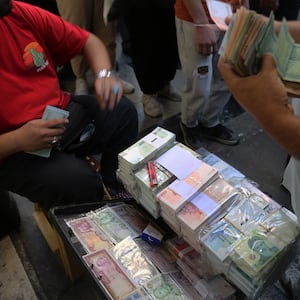Business
UN Reinstates Sanctions on Iran After Nuclear Talks Fail

Widespread sanctions imposed by the United Nations on Iran have come back into effect for the first time in a decade. This development follows the collapse of recent nuclear negotiations between Iranian officials and Western powers, primarily the United States and European nations. The renewed sanctions, which prohibit any dealings related to Iran’s nuclear and ballistic missile programs, are anticipated to have significant repercussions for the country’s already struggling economy.
The sanctions were reinstated three months after military actions carried out by Israel and the United States against Iranian targets. These actions have heightened tensions in the region and intensified calls for diplomatic solutions. Following the announcement, US Secretary of State Marco Rubio emphasized the importance of continuing diplomatic efforts. He urged Iran to engage in “direct talks, held in good faith,” suggesting that there remains a pathway to resolution despite the setbacks.
In a statement, Rubio called on UN member states to “immediately” enact the sanctions. He asserted that this would apply necessary pressure on Iranian leadership to act in a manner that is both beneficial for their nation and conducive to global safety. The sanctions aim to curb Iran’s nuclear ambitions and missile capabilities, which many countries view as a significant threat to regional and international stability.
The reinstatement of sanctions marks a critical juncture in ongoing international efforts to address Iran’s nuclear activities. European and US diplomats reiterated that although negotiations have faltered, diplomacy is not exhausted. They remain committed to finding a peaceful solution that ensures compliance with international treaties and safeguards against nuclear proliferation.
As the situation unfolds, the implications of these sanctions are expected to reverberate throughout the Iranian economy. With restrictions on key sectors, including energy and finance, analysts predict further economic strain for a nation already grappling with high inflation and unemployment rates.
The international community continues to monitor developments closely. The actions taken by the United Nations, along with the responses from Tehran, will likely shape the geopolitical landscape in the coming months. While the road ahead appears challenging, the hope remains that diplomatic avenues can be explored to alleviate tensions and foster a more stable environment in the region.
-

 World4 months ago
World4 months agoTest Your Knowledge: Take the Herald’s Afternoon Quiz Today
-

 Sports4 months ago
Sports4 months agoPM Faces Backlash from Fans During Netball Trophy Ceremony
-

 Lifestyle4 months ago
Lifestyle4 months agoDunedin Designers Win Top Award at Hokonui Fashion Event
-

 Entertainment5 months ago
Entertainment5 months agoExperience the Excitement of ‘Chief of War’ in Oʻahu
-

 Sports4 months ago
Sports4 months agoLiam Lawson Launches New Era for Racing Bulls with Strong Start
-

 World5 months ago
World5 months agoCoalition Forms to Preserve Māori Wards in Hawke’s Bay
-

 Health4 months ago
Health4 months agoWalking Faster Offers Major Health Benefits for Older Adults
-

 Lifestyle4 months ago
Lifestyle4 months agoDisney Fan Reveals Dress Code Tips for Park Visitors
-

 Politics4 months ago
Politics4 months agoScots Rally with Humor and Music to Protest Trump’s Visit
-

 Top Stories5 months ago
Top Stories5 months agoUK and India Finalize Trade Deal to Boost Economic Ties
-

 Health2 months ago
Health2 months agoRadio Host Jay-Jay Feeney’s Partner Secures Visa to Stay in NZ
-

 World5 months ago
World5 months agoHuntly Begins Water Pipe Flushing to Resolve Brown Water Issue









